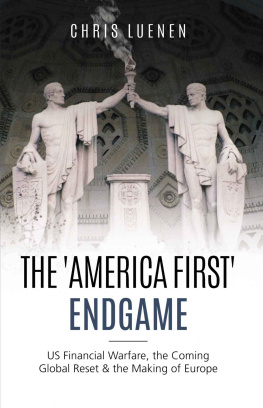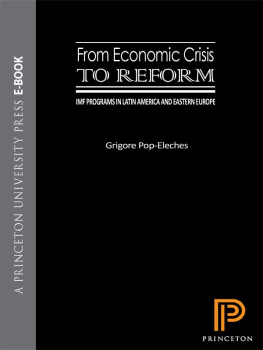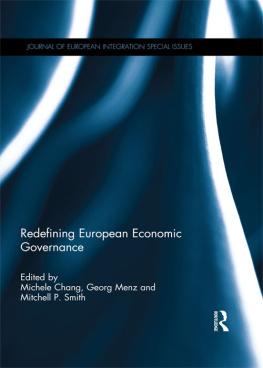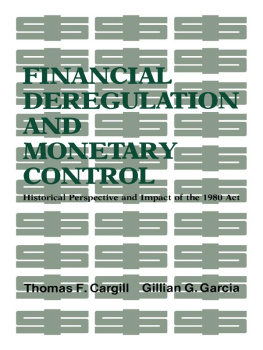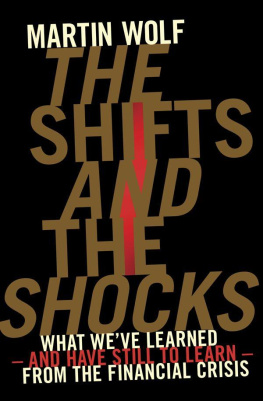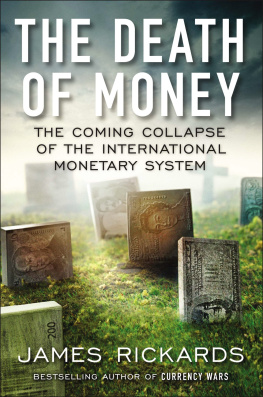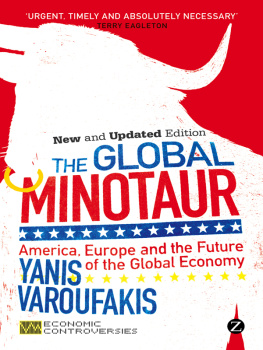About the Author
Chris Luenen is an Associate Director and Head of the Geopolitics Programme at the Global Policy Institute, an international affairs think tank in London, and Director of Blenheim Strategy. Chris has worked at the intersection of public policy, academia, the media and private sector consultancies for almost 15 years. He also provides regular geopolitical and geo-economic risk studies and briefings for a range of private sector clients. In the past, Chris also worked for the leading German political foundation, the Konrad Adenauer Stiftung (London Office), for the business network Industry Forum, and for a cyber security start-up and technology innovator in London. Chris has been published widely in newspapers, policy publications and on online media platforms, including in The Guardian, DIE ZEIT, World Politics Review, The Atlantic Times/German Times, The National Interest and Euractiv.
Follow Chris on Twitter: @ChrisLuenen
In memory of Stephen Haseler (1942 - 2017),
my intellectual inspiration, dear friend and mentor.
You are sorely missed.
Acknowledgements
First and foremost I would like to thank my mother, who has always supported and encouraged my intellectual and academic pursuits, while having had to endure, and suffering patiently over the years, endless monologues and rants about what is happening in the world, causing her countless sleepless nights. Your love, patience and support can not be repaid in one lifetime, but I hope you know how much I appreciate you. I would also like to thank my brother and father for their love, encouragement and support throughout this process, and in general of course.
My gratitude is also due to Bay Haseler, the late Stephen Haselers wife and lifelong companion. Bay and Stephen have always been there for me, professionally and personally, for so many years, welcomed me to their home and in many ways provided me with a family away from home. My thoughts are with you always.
I am also deeply indebted to my longstanding colleagues and friends at the Global Policy Institute, especially Professor Chris Dixon, but also Professor Sam Whimster and Viara Bojkova, for their consistent help and support throughout the process of writing this book, their always considerate and extremely useful comments and suggestions, and especially for engaging in the extremely time-consuming task of reading and editing numerous drafts of the book. Beyond your help with the book, I thank you for, and greatly appreciate, your friendship, and our countless and stimulating discussions over many pints and lunches over the past 10+ years. I would equally like to thank my other longstanding colleagues and friends at the Federal Trust, with which the Global Policy Institute has been cooperating closely, especially its director, Brendan Donnelly, and deputy director, Ulrike Rb-Taylor. I very much appreciate your colleagueality and look forward to hopefully many more years of fruitful collaboration.
I would also like to thank all my other friends, colleagues and extended network who have taken the time to review and comment on aspects of the book; or have been supporting me in countless other ways. In particular, I would like to thank Graham Bishop, founder of grahambishop.com; Professor Salim Rashid, Emeritus Professor of Economics at the University of Illinois, Urbana-Champaign; Dr Michael Lloyd, Global Policy Institute; Dr Andrew Black, Global Policy Institute; Professor Anatol Lieven, Georgetown University (Qatar); and Dirk Engelke, for his patient help with designing the cover and making it look as good as it does now.
Last, but in no way least, I would like to extend a very special thank you to a dear friend and partner in crime, who encouraged me countless times to finally get the damn book done and published, but who has also been a longtime kindred spirit, and who has proven a loyal and steadfast companion on this crazy journey. Although you dont like to be named, you know who you are, aka the Ninja.
Copyright Chris Luenen 2019
The right of Chris Luenen to be identified as Author of this Work has been asserted in accordance with the UK Copyright, Designs and Patents Act 1988.
First published in 2019 by Forumpress in partnership with Blenheim Strategy.
Forumpress
c/o Global Policy Institute
University House
109-117 Middlesex Street
London E1 7JF
United Kingdom
Blenheim Strategy
London/Berlin
www.blenheimstrategy.com
All rights reserved. Except for the quotation of short passages for the purpose of criticism and review, no part of this publication may be reproduced, stored in a retrieval system, or transmitted, in any form or by any means, electronic, mechanical, photocopying, recording or otherwise, without the prior permission of the publisher.
ISBN: 978-1-907144-12-7 (paperback)
ISBN: 978-1-907144-13-4 (electronic)
A catalogue record for this book is available from the British Library.
All figures and graphs reprinted with permission by the rights holders, as indicated in the text when appropriate.
Cover Design by: Dirk Engelke and Chris Luenen
Cover Photo: The cover photo is an edited/adapted version of the original image Bush House (3) by Matthew Huntbach, https://www.flickr.com/photos/mhuntbach/
The America First Endgame
US Financial Warfare, the Coming Global Reset and the Making of Europe
Contents
Who controls the past controls the future. Who controls the present controls the past.
Preface
When financial disaster struck in 2007/8, starting in the United States real estate sector and quickly engulfing Americas financial institutions, and soon thereafter going global, the Global Policy Institute in London, and especially its late director Professor Stephen Haseler, already anticipated that this crisis was not just another crisis, soon to be overcome and heralding the next wave of economic expansion. Stephen Haseler published his prescient book Meltdown: How the Masters of the Universe Destroyed the Wests Power and Prosperity in late 2008, making the compelling case that this crisis, which in essence was the coming to a head of a structural western debt crisis caused by decades of offshoring middle class jobs abroad and by the progressive financialisation of western economies, would mark the beginning of the end of the short-lived post-Cold War unipolar moment. This order would, in Haselers view, soon usher into a world of much more protectionist regional blocs, or continent-states, and, at least for a while, in a much less globalised and global capital friendly international economic and financial system.
The old and now crumbling order, as Haseler saw it, was characterised by a combination of near-global US military and political hegemony coupled with a process (or rather policy) of neoliberal globalisation that attempted to globalise the hitherto western liberal international order, and integrate the newly independent states of the former Soviet Union, and even China, into this expanding system. This project was driven by the hubris of neoliberals and neoconservatives an alliance between Wall Street and the Pentagon and their, for the most part willing, subordinates in Europe and elsewhere. Despite their otherwise stark differences, including in long-term aims, they all believed that the US, and therefore western values of liberal democracy and free market capitalism, had not only emerged victorious from the decades-long Cold War conflict with the Soviet Union, but that they were about to make their final victory lab globally. As Haseler argued in his book, the economics of the old order essentially rested on the model of America consumes and China produces; a model that allowed the US to rake up enormous budget and trade deficits, and issue endless new credit to pay for these deficits, without producing inflation at home or de-basing the US Dollar. The widely held hope at the time was that by integrating China into the global economy, China would eventually be forced, under the pressure of global market forces, and by its own population, to liberalise its economy and even political system, thereby allowing western capital to enter China. This flight of fancy would never come to pass of course. Instead, by encouraging billions of cheap Chinese workers to enter the global workforce, globalisation essentially resulted in a progressive race to the bottom, driving down costs, producing the great western middle class jobs and debt crises, and providing the rationale that allowed western elites to undermine the Wests balanced, and middle-class friendly, post-war social market economic model that had succeeded in producing largely pacified and prosperous populations, and nations with a significant degree of social cohesion and domestic stability.

